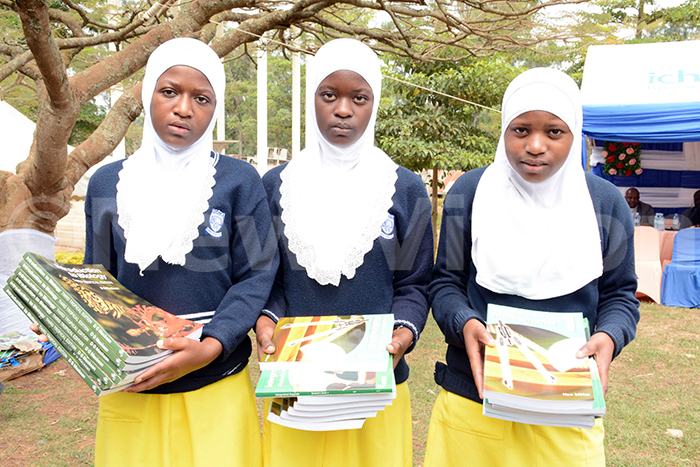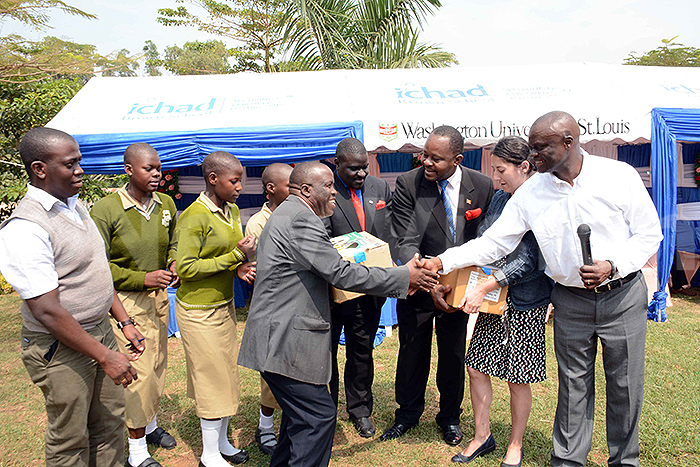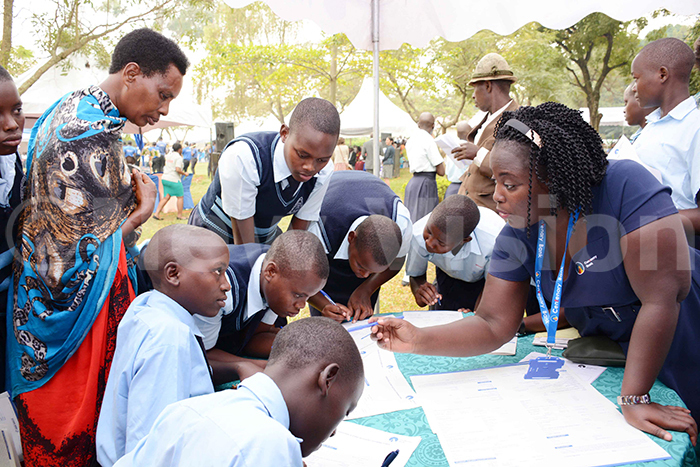Commissioner applauds 'Hope For Her project'
Jul 31, 2018
The project comes in at a time when the country is challenged with the issues of growth and development.

PIC: Guests attending the opening of the third annual conference on child behavioral health in Masaka town. George Mutekanga (right), a comissioner for private schools, Minister Nakiwala Kiyingi, Dr. JC Muyingo and the Masaka diocesan bishop, John Baptist Kaggwa (left). (Eddie Ssejoba)
EDUCATION
KAMPALA - The assistant Commissioner for private schools in the ministry of education, Dr. George Mutekanga has applauded the Suubi for Her (Hope For Her) project that focuses on adolescent girls transitioning into adulthood with an intention of improving their welfare.
He said that the project comes in at a time when the country is challenged with the issues of growth and development that have far reaching implications for the adolescent girls.
"Available research by my ministry indicates that child marriage, teenage pregnancy, HIV/Aids are among the major causes of school dropout among adolescent girls in Uganda," he said.

Students from Kabukunge SS in Kalungu district with some of the text books that were donated by the International Center for Child Health and Development at Kimaanya parish. (Credit: Eddie Ssejjoba)
The commissioner said this during the launch of the ‘Suubi For Her' research project at Kimaanya Parish grounds in Masaka town on Monday.
The project, under the International Centre for Child Health and Development 9ICHAD) facilitated 700 Senior One girl students from 48 students in Masaka region to open up bank accounts.
It is spearheaded by Prof. Fred Ssewamala in collaboration with Dr. Mary Mackay, the dean of the Brown School, which is under Washington University in the United States.
He said key drivers of teenage pregnancy and child marriage include low value attached to girls' education, parental neglect of their children reflected in failure to provide the basic requirements for the adolescent girls such as mid-day meals, knickers, sanitary towels, books and pens among others.
Failure on the part of parents and guardians to provide the much needed support, he explained, leaves the adolescent girls vulnerable to perpetrators of sexual violence who are willing to give in return for sex.

Prof. Fred Ssewamala, LC5 chairman for Masaka, Jude Mbabaali and Municipality Mayor, Godfrey kayemba during the handing over of text books to schools where he is doing research, under the Suubi For Her project at Kimaanya Catholic parish in masaka town. (Credit: Eddie Ssejjoba)
The project, headed by Prof. Ssewamala, contributes the same amount each respective beneficiary saves on her account not exceeding $10 every month, which would be used to buy scholastic needs or invest in a small project for the student in future.
The students were in addition provided with text books and exercise books. They would also continue to get paid for lunch and uniforms through the five-year period.
In a related development, the state minister for youth and child affairs, Nakiwala Kiyingi has said that majority of street children (over 63%) come from the Central Region (Buganda) contrary to a general belief that they come from Karamoja.
Nakiwala was giving a key note address at the opening of the three-day third annual conference on child behavioral health in Sub-Saharan Africa in Masaka town, which was also organised by Prof. Ssewamala, who is also the director for SMART Africa Centre under Washington University.

The project, executed under SMART Africa (Strengthening Mental Health and Research Training) focuses on adapting and testing an evidence-based intervention and multiple family groups to address child and adolescent mental health difficulties in three-sub Saharan African countries including Uganda, Kenya and Ghana.
Working with teachers, head teachers and parents of selected pupils in Primary Four from the districts of Kalungu, Masaka, Lwengo and Rakai, the Child and Adolescent Mental health creates dialogues between the stakeholders to discuss challenges of children with behavioral issues so that together they suggest solutions.
"Mental health challenges that emerge during childhood and adolescence may compromise healthy transition to adulthood and increase economic and social costs for families, governments and society in general," Prof. Ssewamala said.
